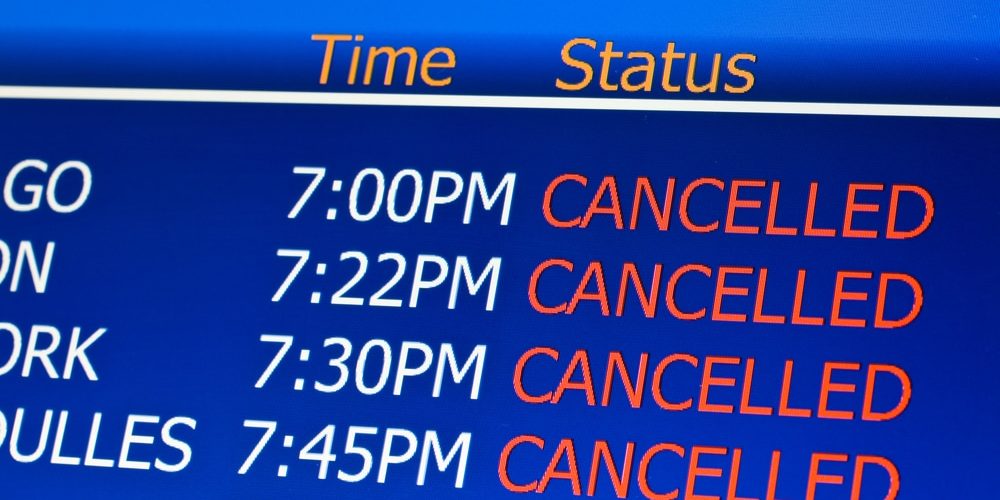Commuting Risks as a New-hire Flight Attendant
Question:
I would like to become a flight attendant, but my husband is not willing to relocate because of his job. Is it feasible to get a flight attendant job that will allow me to stay in the Orlando area and commute to my base?
Answer:
We seem to be receiving this type of question very often from our readers. Unlike most traditional jobs, flight attendant positions do not necessarily require you to relocate.
Many senior flight attendants live where they want and commute by air to and from each trip freely. If they pick their trips carefully, they can even commute in on the day the trip starts and commute out on the day it ends, maximizing their days at home. Some travel just an hour by air, some across the country and even some commute from as far away as Europe! it is not quite that easy as a new-hire flight attendant due to the many requirements and restrictions during your early career stages. When you are first hired as a flight attendant, you will be assigned to the airline as a “reserve.” In this capacity, you will be on call and depending upon the specific airline flight attendant contract, you will be required to be available in base for emergencies such as replacing a sick flight attendant or a flight attendant who is out of position and unable to make his or her trip. In most cases, a reserve is required to be available within 1 or 2 hours (driving time) from the airport, although some are required to be available as “quick calls,” which means getting to the airport as soon as possible because of last minute crew changes.
Most new-hire reserves will coordinate with other flight attendants (and sometimes pilots) to share the costs of a “crash pad.” This is nothing more than a large house or apartment with several bedrooms, a shared living room, kitchen and bathroom that accommodates anywhere from 6 – 12 people. You may or may not have a private bedroom. Monthly fees range from $150 – $350 per person, depending upon the type of accommodations. Since everyone’s schedule is different, there sometimes can be as few as one or two people spending the night in the crash pad. Typically, these types of accommodations are centrally located very near the airport and meet the needs of the airline for “quick call” situations. One of the biggest websites for finding this type of accommodation is crashpads.com.
As a reserve, you will be required to be “in-base” and on call for about nineteen days per month (spread throughout the month) with duty-free days in between. Of course, on your off days you are allowed to fly or drive home, but you should always try to commute on the day before your duty period starts, in the event of flight cancellations, bad weather, etc. Not making it to your base because your flight was cancelled is not looked highly upon by the airline or your inflight supervisor. Always plan to have several backups after the flight you are planning to take in the event of problems. Once you gain seniority and become a lineholder, there is no longer a reserve requirement because you will have a regular schedule working 14 – 16 days per month. Even then, however, many crew members will maintain a spot in the crash pad for trips that leave too early or arrive too late to allow commuting to or from home.
If the crash pad arrangement does not appeal to you and you are more of a private person, you can opt for staying in a hotel. Most crew bases publish sheets with the lowest rates for crewmembers at various hotels near the airport. In low cost cities (e.g. Charlotte, NC), you can find hotels as low as $30/night, but if you are based in Washington, D.C., you will find rates double or triple that amount which may make hotel life cost-prohibitive especially if you need to spend more than a few nights there.
If you don’t like the idea of commuting at all, you will need to restrict your job search to airlines with domiciles within driving distance of your home. In Orlando (which you mentioned), there are several airline crew bases. You might even consider some of the other Florida bases within driving distance like Ft. Lauderdale and Miami.
For more detailed information about being a new-hire reserve along with other aspects of what’s it’s like to be a flight attendant, check out latest our eye-opening e-book, “Is a Flight Attendant Career Right for You?”
Good luck!
Email your questions to: [email protected]
Check Out This Related “Ask the Recruiter” Content
How to Handle an Irate Passenger
Flight Attendant Requirements – Part I
Flight Attendant Requirements – Part II
Flight Attendant Requirements – Part III
How to Answer Flight Attendant Interview Questions
Flight Attendant Interview Thank-you Notes
Flight Attendant Salary – Part I
Flight Attendant Salary – Part II
American Airlines Flight Attendant Jobs
Please email your Ask the Recruiter questions to: [email protected]






